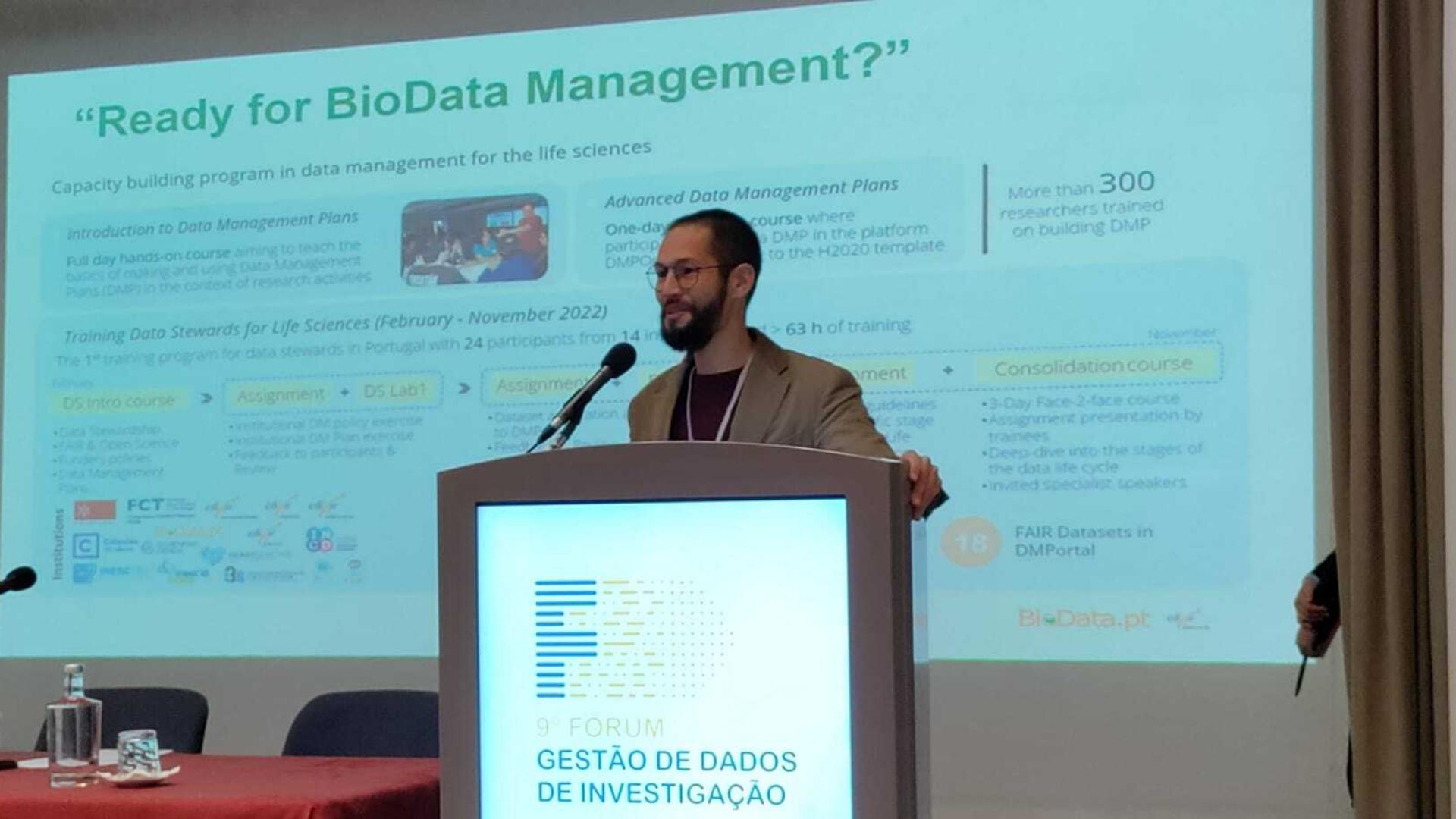
BioData.pt is present at the 9th Research Data Management Forum in Évora
BioData.pt Chief Technical Officer, Jorge Oliveira, is present at the 9th Research Data Management Forum (9º Fórum de Gestão de Dados de Investigação), which is being held this Thursday and Friday, November 24th and 25th, 2022, at the University of Évora. This Forum is organized by the FCT-FCCN – Portuguese Foundation for Science and Technology, through its Scientific Computing Unit, FCCN, and by the University of Minho, through its Documentation and Libraries Service Unit, promoted within the scope of the activities of the RCAAP – Open Access Scientific Repositories of Portugal.
This event aims to bring together and stimulate the community of professionals and researchers involved in activities to support research data management, in order to develop technical skills, capitalize on knowledge and practices and promote knowledge about national initiatives.
It is a space for training and debate to share ideas, emerging initiatives, projects and good practices to support research data management, which seeks to bring together managers of digital repositories and data centers, information technicians, libraries, archives and data curation, informatics specialists, researchers, data scientists and science managers from research institutions and science funding bodies.
Jorge Oliveira gave a talk entitled “Development of skills in research data management in the life and health sciences”, representing the other authors, Ana M. P. Melo, Mário Gaspar da Silva and Daniel Faria from BioData.pt, focusing on the efforts of several ELIXIR related projects, such as ELIXIR-CONVERGE, Beacon and Federated Human Data Implementation Studies, and of the ELIXIR Training Platform. The selected outputs are the BioData.pt “Ready for BioData Management?” Training Program, the RDMkit and the Federated European Genome-Phenome Archive.
In this presentation, Jorge Oliveira demonstrated how Biodata.pt has been supporting the national scientific community in the life and health sciences through (i) the promotion of Open Science and the FAIR (Findable, Accessible, Interoperable and Reusable) data principles; (ii) the provision of training in management and analysis of research data; (iii) the availability of resources and services for this purpose; and (iv) the interaction with industry to facilitate the transformation of knowledge into innovation.

